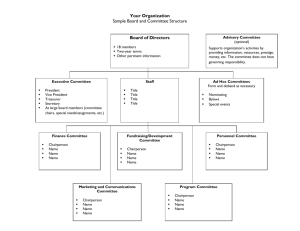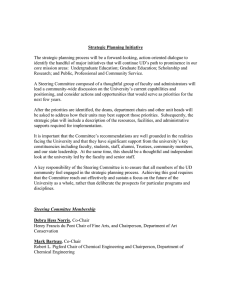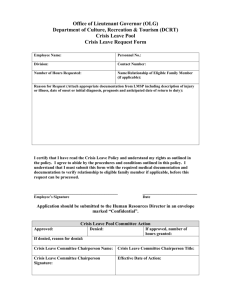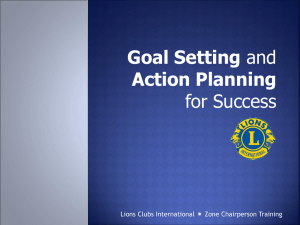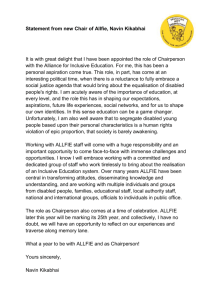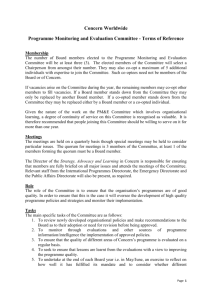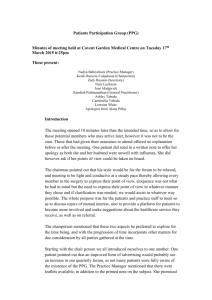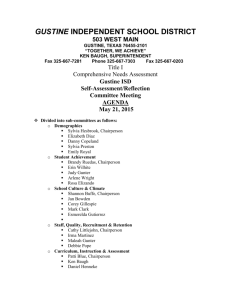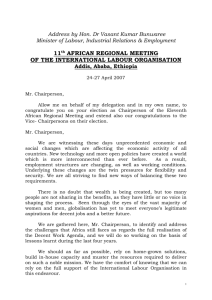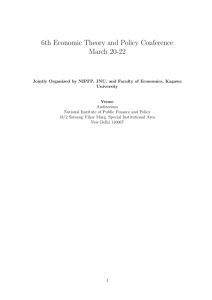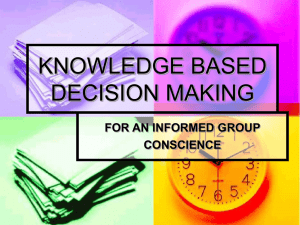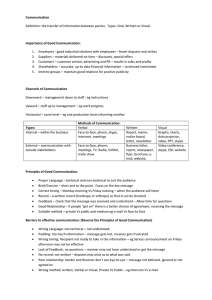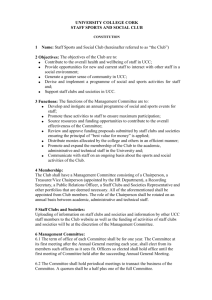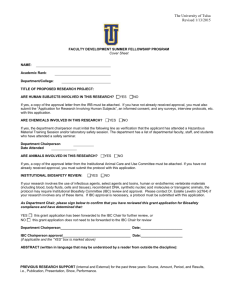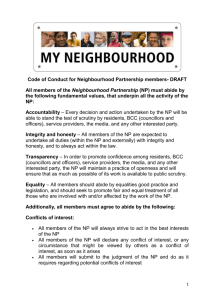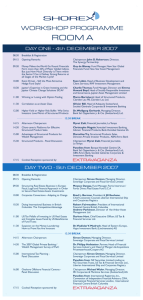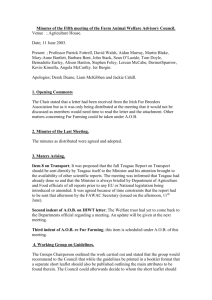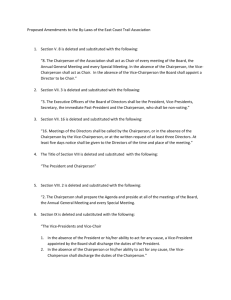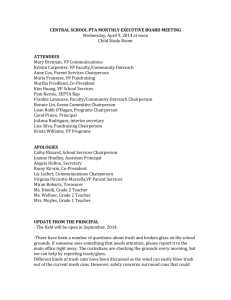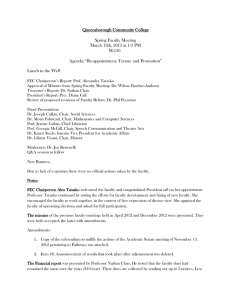Manage Meetings - Pony Club Association of NSW
advertisement
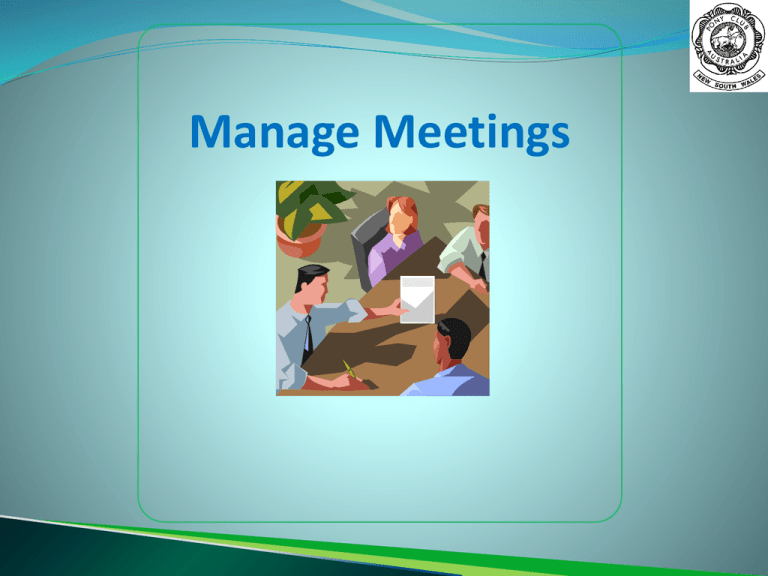
Manage Meetings Best practice for meeting procedures Prepare for meetings Conduct meetings Follow-up meetings Do Meetings Matter? Why do you think you attend meetings? By attending a meeting you have the chance to have your say in what goes on at your club. Do you think meetings waste your time? Meetings do take up your time however without a means of communication a club can not function. Who should attend a meeting? Any financial member of a club may attend a member however the Associations constitution states that you must be 18 years of age to vote. Types of Meetings There are only a few types of meetings at Pony Club General Meeting (usually monthly), Annual General Meeting (AGM) and Special General Meeting Management or Executive Committee meetings Sub committee meetings Information sessions Planning for Meetings Venue – Ensure it is suitable for the number attending. Seating – Ensure that there are enough seats for everyone. Time-frames – Have a time-frame in mind don’t let the meeting drag on all night. Info to be presented and how? – Do you need handouts? How you inform attendees – Via hard copy agenda, email agenda? Specific roles of attendees – Who is responsible for what job? Successful Meetings Start on time Pre-distribute the agenda Timeframes attached to agenda items Focus on objectives Chaired by elected person who clarifies and avoids unnecessary debate Accept apologies for those un-attendees Kept on track by chairperson Results oriented End on time and on a positive note Minutes are distributed in a timely manner with items to be actioned Agenda Statement of the meetings purpose Date, time, place, and location Welcome Minutes of the previous meeting Matters of business arriving from previous meeting Correspondence Reports Major agenda items General business Dates of next meeting Agenda At the Meeting Call to order Minutes Business Arising Officer’s reports Committee reports New businesses Special interest programs Announcements Adjournment Meeting Protocol The style and structure of any meeting will depend on: Its purpose – is this a monthly meeting to keep members up to date or is it an AGM. The number of participants – do you require a larger meeting room for an AGM Special needs of participants Meeting Protocol Steps to ensure meeting appropriate protocol: Make a list of all people who are expected to attend What timeframes are involved What formalities are involved Ensure all members are aware that the meeting is scheduled. Meeting Confirmation It’s a good idea to confirm any bookings e.g. venue, equipment etc. a few days prior to prevent mishaps on the day. Conducting Meetings Roles within meetings: Chairperson – what is his/her role? A Chairperson should be well respected and have control of the meeting at all times, they should also be impartial and keep any personal opinions out of the meeting. The Chairperson should steer the meeting through an Agenda and limit the time that speakers have so that the meeting can finish on time. Recorder (minute taker) – what is his/her role? – A minute taker should confer with the Chairperson to ensure that they know what details need to be recorded. They should keep an accurate record of the meeting and follow the agenda where possible. Conducting Meetings Participants – what is their role? – Should always be respectful of other participants and observe meeting protocol of either standing or raising their hands if they wish to speak and always speak through the chair. Conducting Meetings What can be done if a meeting deviates from its planned agenda? If the meeting is deviating from the planned agenda the Chair should guide the meeting back to the correct topic. Who do you think should chair meetings – why? – A Chairperson should be capable of guiding a meeting and keeping things under control. How long should meetings last – why? Meetings should be kept to as short a time as possible, it is easier to get a consensus if people are focused and not bored. It is better to have more frequent meetings than really long meetings. How can you encourage participation in meetings? The Chairperson should remind people that they are part of the meeting process and encourage input. Recording Minutes Accurate recording is essential: Provides a transcript of the meeting Provides accurate record of what has been said by whom Allows people to review what they said and committed to Can be referred to in any disputes Informs those members who couldn’t attend Used to check progress toward completion of actionable items Recording Minutes Minutes should include: Items for discussion Decisions Actions Timelines Persons responsible for actions Minutes Follow-up Meetings Before distributing minutes, check for: Suitability of tone and communication style with the Chairperson Readability, grammar, spelling, etc. Sequencing and structure Organisational requirements Discriminatory language Jargon that may not be understood by all. Conclusion: Prepare for meetings – preparation and notifications of meetings is essential to good communication within a club. Conduct meetings – make sure that meetings are professionally run and that all participants have a chance to have their say. Ensure that the meeting keeps to the agenda and runs to projected time frames. Follow-up meetings – it is essential that all actionable items are attended to as soon as possible and followed up before the next meeting.
